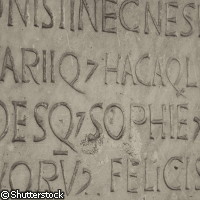Scholars investigate Europe's cultural memory
Historians from the Netherlands, Austria and the UK have teamed up to investigate how medieval societies used the past to establish ideas about people and their identity, and how these ideas continue to play a major role in today's society. The project, called 'Cultural Memory and the Resources of the Past, 400-1000', is a joint collaboration between the Universities of Cambridge and Leeds in the UK, and the Universities of Vienna (Austria) and Utrecht (the Netherlands). The project is supported by a EUR 1 million grant from the HERA ('Humanities in the European Research Area) Joint Research Programme (JRP). The researchers will focus on six centuries of western European history - from the period 400 to 1000 AD. Their work, which will be carried out over a three-year period, will centre on how earlier traditions, along with other sources like the Bible, were instrumental in forming state identities following the deposition of the last Roman emperor in the West in the fifth century. The team will spotlight two key issues: how texts were 'transmitted' from one individual centre to another; and what challenges people faced in forming identities in early medieval Europe's complex social, political and religious mix. Questions to be answered by the researchers include how the Roman imperial past influenced people's state of minds during the medieval era and how today's Europeans are still impacted by the concepts of ethnicity and society that emerged during that period. They will also investigate the complex processes by which ideas were exchanged between the Greek-speaking Byzantine world to the East, and the Latin-dominated West. Europeans recognise how influential a role the early Middle Ages played in western European history. However, questions remain regarding Europe's cultural inheritance, particularly how ideas were absorbed, as well as how that process has affected us over so many years. For 600 years, Europeans faced myriad changes in their lives including the creation of new ethnic identities and the development of novel ideas about diverse western European societies. As far as religion goes, Christianity spread like wildfire during that period. Rulers of that time referred to the Latin Bible as a source of supreme law and as one of authoritative history, and commentary on the present, according to the scholars. They were also in awe of the classical world. For them, Rome was considered the centre of all, a place to associate cultural and religious power, especially since Rome was the hub of Latin texts. Classical texts during this period were used to establish traditions and ideas for Europeans. These events led to the foundation of several modern myths that continue to impact the lives of Europeans today. Moreover, current ideas about national origins and the Christian identity of Europe, among others, were formulated during the early medieval period. This latest project will tackle how these events emerged and how they have influenced us ever since. This project is one of several HERA-funded projects investigating European inheritance and identity. The partners will establish a website allowing public access to preliminary reports, materials and results during the course of the project.
Countries
Austria, Netherlands, United Kingdom



